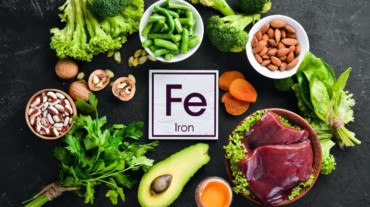
It is a fact that pregnancy is a critical journey for every woman and during this phase of her life, a woman requires the best state of physical and mental health for the well-being of the baby. However, because of constant changes in the body and heavy period flow, every month can cause iron deficiency or anemia in women. This can make conceiving difficult by affecting your reproductive health!
1. Feeling dizzy
2. Tired and short breath
3. Cold and weak
4. Pale Skin
Most women are not aware of its consequences, and how iron deficiency affects their own fertility. So let’s understand this.
The development and creation of cells are regulated by iron. Infertility, low birth weight, preterm labour, and even miscarriage have all been associated with iron deficiency. It has been shown that iron-deficient women have trouble ovulating, and not ovulating make becoming pregnant all but impossible. The amount of oxygen carried to the essential organs, such as the uterus and ovaries, decreases when iron deficiency reaches an unhealthy level because it stops red blood cells from growing and functioning normally. Even if you successfully ovulate in such circumstances, the quality of the egg would be poor.

Even if women are able to become pregnant in such circumstances, the baby’s growth inside the womb will be hampered by a deficiency of vitamins and iron. Pregnancy issues are more likely when the placenta is not developing properly. The importance of vitamins to your overall health cannot be overstated. Critical vitamins like vitamin B and D deficiency might interfere with your body’s natural processes. Now worried? There are numerous ways to obtain these necessary nutrients for optimum reproductive health, so don’t worry.
Also read: Watch out for any signs of anemia before you plan a baby, and even during pregnancy
How to overcome vitamin and iron deficiencies?
The lack of essential nutrients in your body can put you under concern. But fortunately, there are several ways through which you can ensure that your body has all the nutrients it needs to carry a healthy pregnancy. Here are some ways to restore your dose of essential nutrients:
Taking supplements is the easiest and quickest way to ensure that your body has all the essential nutrients. Make sure you always take prescribed supplements and advice from a certified healthcare professional.

Maybe not the quickest but the healthiest way to get things done. Having a balanced healthy diet has more than one benefit. Make sure your diet has all the essential vitamins and minerals. To ensure iron in your diet, you can eat legumes, peas, beans, green leafy vegetables, or whole grains such as oatmeal. These are good sources of non-heme iron which comes from plant-based sources.
Select Topics of your interest and let us customize your feed.
PERSONALISE NOWAlso read: Fight iron deficiency with these 7 winter fruits and veggies
If you are good with consuming animal sources to get protein, you can try adding lean chicken, turkey, salmon, tuna, and eggs to your diet. Not all kinds of meat are good for your health and when it comes to it, you should avoid having red meat in your diet.
Takeaway
Every day, try to ensure to absorb as much iron as possible and pair iron with nutrients that promote iron absorption. Vitamins and iron deficiency are easily treatable with some minor diet and lifestyle changes.